
News List
Serving Lecturer: Introduces the Advantages of Sustainable Biological Fertilizer to the Regent of Blora (IPB News)
IPB News - Dr Yunik Istikorini, lecturer at the Department of Silviculture, along with other young lecturers from the Department of Plant Protection, IPB University, namely Fitrianingrum Kurniawati and Nadzirum Mubin, introduced the various advantages of biological fertilizer.
This activity was attended directly by the Regent of Blora, H Arief Rohman along with other officials as well as the Gondel Village farmer group along with Family Welfare Empowerment Women (PKK) on November 11 2023 at the Gondel Village Hall Office, Kedungtuban District, Blora Regency.
“Biological fertilizer is organic fertilizer added with beneficial microbes. "There are many potential microbes that can be added to organic fertilizer so that the fertilizer has added value so that the minerals in the fertilizer can be properly absorbed by plants," said Yunik.
He mentioned many potential microbes such as Trichoderma, Gliocladium, Bacillus, Pseudomonas fluorescens, Azosprillium, and Azotobacter. These potential microbes are very easy to obtain, for example from forest soil, areas around the roots (rhizosphere) of bamboo, bananas, grass and other healthy plants.
“Plants to which biofertilizer is added have advantages compared to synthetic fertilizer. "Biological fertilizers that are added to plants tend to be healthier and more productive and have higher productivity than plants that are added to synthetic fertilizers," he said.
He explained that the use of synthetic fertilizers has the opposite impact, apart from being expensive, synthetic fertilizers are difficult to obtain. Excessive and continuous use of synthetic fertilizers can cause soil damage so that planting in the following season can reduce plant productivity.
#SDGs3 #SDGs15 #SDGs17
PTN Lecturer Answers: Viral, Photo of Ants Can Spit Water, What Species is That? (Kompas.com)
KOMPAS.com - Uploaded a photo of a group of ants shooting water upwards went viral on Twitter social media. The photo was shared by one netizen on Tuesday (21/3/2023). Seen in the photo, a group of ants shoot water from their bodies upwards.
"Mpsshhh," wrote this account. The upload then received various comments from netizens. "What are your little ants doing?" asked this account. "Pee together hahaha," wrote this account. "I swear, this smells and tastes really sour. Especially when we put it in our tea cup, we continue to drink it," said this account. As of Wednesday (23/3/2023), the upload had been broadcast 947,600 times, liked by 4,585 Twitter users, and retweeted 295 times. So, what are the ants actually doing when they spout water?
Self-defense of ants Lecturer in the Plant Protection Department of the Bogor Agricultural Institute (IPB) Nadzirum Mubin stated that the action of ants spouting or spraying water is an effort made to survive. "More precisely, spraying a liquid which is part of the ant's defense. This liquid can be called formic acid," he explained to Kompas.com, Wednesday (22/3/2023). This member of the Entomological Society of Indonesia (PEI) explained that this action was only carried out by a group of ants from the Formicinae subfamily. This ant is characterized by one petiole or node on its body. Formicinae ants usually live in free forests. According to him, these ants also exist in Indonesia but there is not much information discussing them. He said that this type of ant originally had a sting but it was reduced or reduced so that it could not be used against enemies. Instead, Formicinae have venom glands containing very large amounts of formic acid.
"The sting is reduced so that the defense tool uses formic acid to repel enemies or intruders," he continued. When the Formicinae ant feels threatened, it will spray formic acid at its enemy. The enemies of these ants include other larger ants, lizards or frogs.
Nadzirum added that each ant species has different formic acid. The effects of this substance depend on the type. There is formic acid which will cause a heat effect so that enemies hit by the spray will die or run away. There are also those that cause an unpleasant odor so that intruders are repelled. "The effects on humans are not too serious," added Nadzirum. Even so, according to him, humans who have allergies and are exposed to large amounts of formic acid are at risk of experiencing serious conditions. For example, if it comes into contact with the eyes it can cause visual disturbances. "But so far there has never been a report regarding this incident," he concluded.
Guest Lecture Series 28: Storage and Residential Pests
Saturday, 25 November 2023. Department of Plant Protection, Faculty of Agriculture - IPB University held Guest Lecture Series 28: Storage and Residential Pests with the title "Pest Control Business in Indonesia" featuring speaker Harlan Bengardi, BSBA, PGHM (PT. Pestigo). This Guest Lecture was held in Gedung Kuliah A (GKA) of the Department of Plant Protection from 09.00 WIB until finished. In his presentation, Harlan Bengardi, BSBA, PGHM explained his experience as CEO of a pest control company and how he ran the company. For more details about this Guest Lecture, please watch the video below:
#SDGs13 #SDGs15
IPB hosted professors and students across continents studying biodiversity in Ujung Kulon, Krakatau and Mount Halimun Salak National Park
IPB University and the University of Vienna, Austria conducted Summer Course activities that aimed to conduct a Rapid assessment of Insect, Bird, and Reptile Diversity in Tropical Landscape. This activity was organized by the Plant Protection Department, Faculty of Agriculture, IPB.
Participants included 23 cross-continental students, namely 12 students from Vienna University-Austria, 2 Vienna University professors, 5 IPB students, 1 student from Jember State University, 2 students from Semarang State University, and 1 student from Northwest Agriculture and Forestry University, China. The number of lecturers involved was 10 people from various universities and institutions.
Activities were carried out in Ujung Kulon National Park (Peucang Island, Panitan Island, and mainland - Cidaon), Sebesi and Sebuku Islands (Krakatau Islands), as well as in Gunung Halimun Salak National Park. This Summer Course activity begins with a briefing lecture over several meetings to equip participants before leaving for the field, as well as training in data collection, data analysis, and presentations. The initiator of this activity, Prof. Christian H. Schulze (Vienna University) and Prof. Dr. Damayanti Buchori (IPB University) stated that this activity was to provide participants with field experience in assessing the diversity of fauna species in natural ecosystems. This activity will take place from 20 August to 4 September 2023.
This Summer Course is one of the superior activities of the Plant Protection Department, according to the Head of the Plant Protection Department, Dr. Ali Nurmansyah. In his closing remarks, the Dean of the Faculty of Agriculture, IPB, Prof. Dr. Suryo Wiyono said that both students and lecturers involved in this Summer Course learned a lot. Apart from biodiversity science, we also study cultural diversity. He further said that apart from strengthening cooperation between universities, this activity is also expected to increase cooperation between Indonesia and Austria.
#SDGs13 #SDGs15 #SDGs17


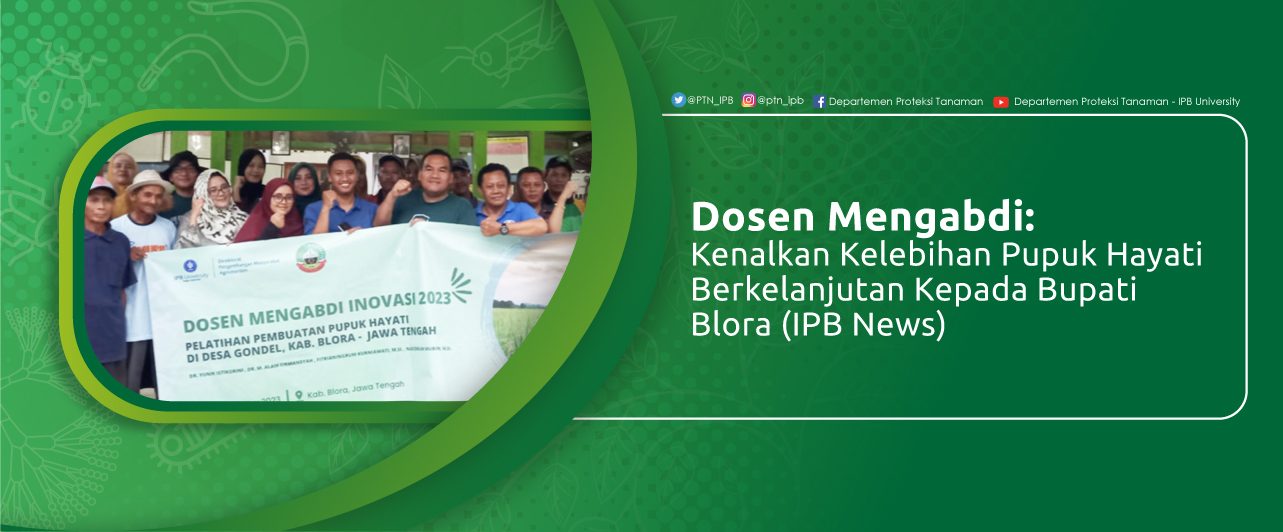

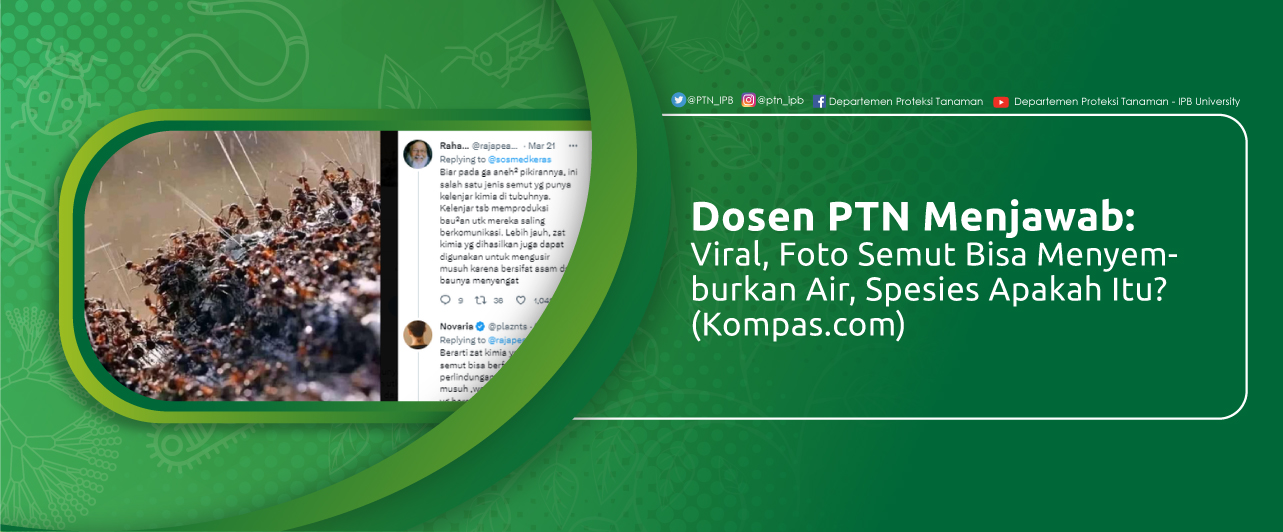

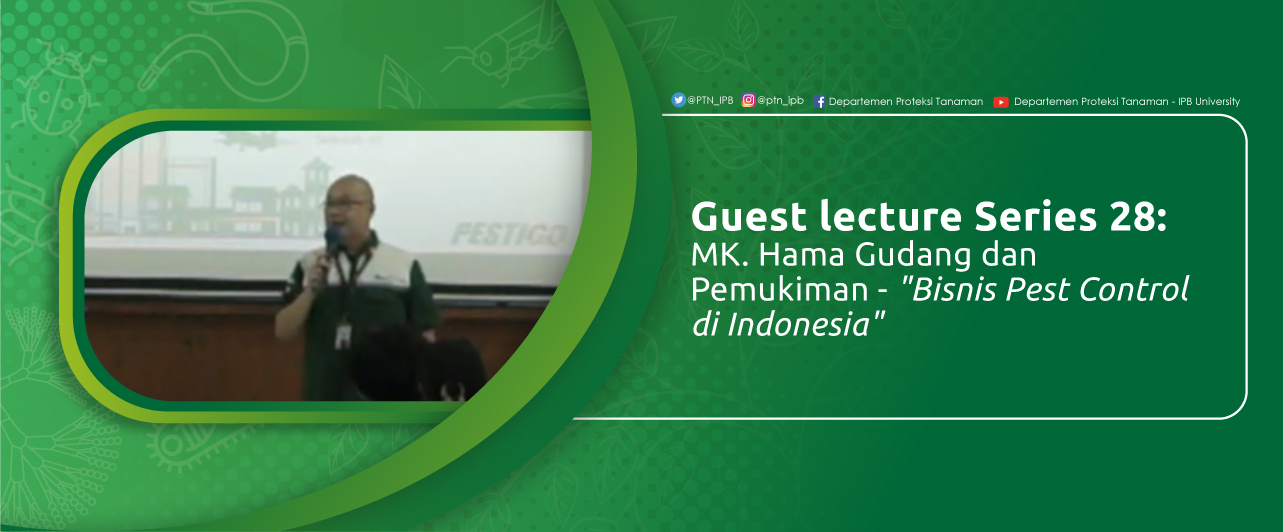

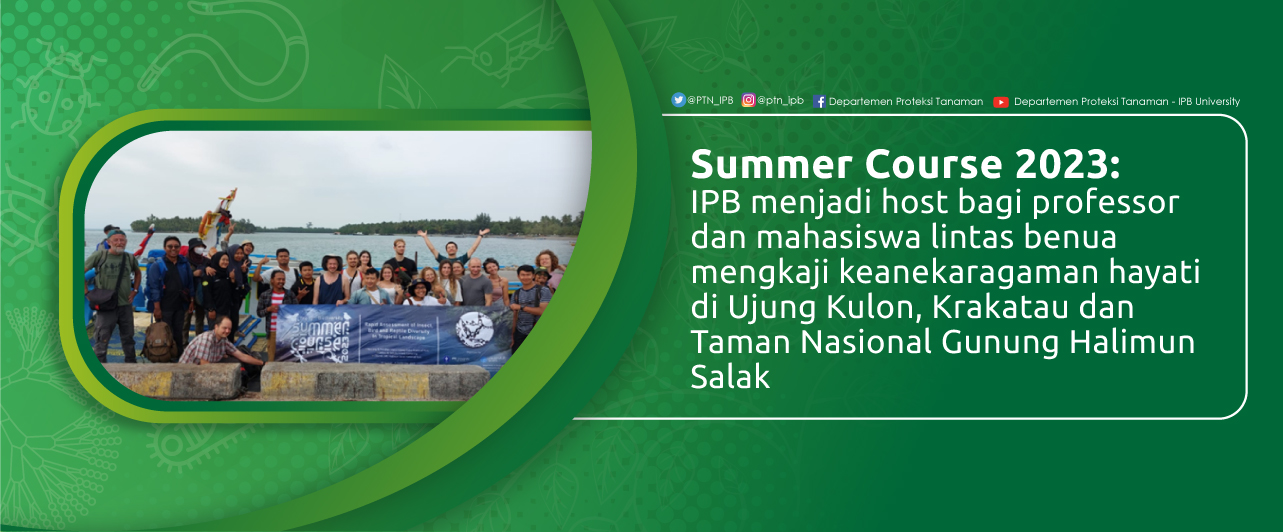
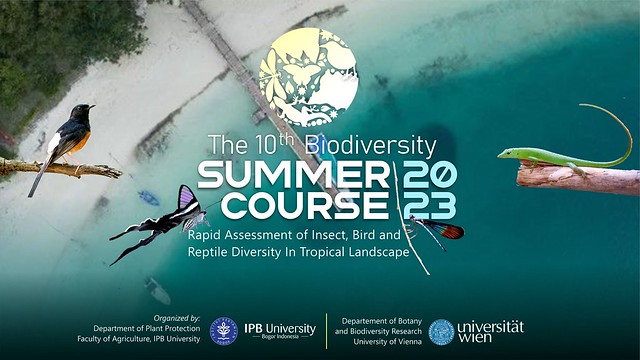
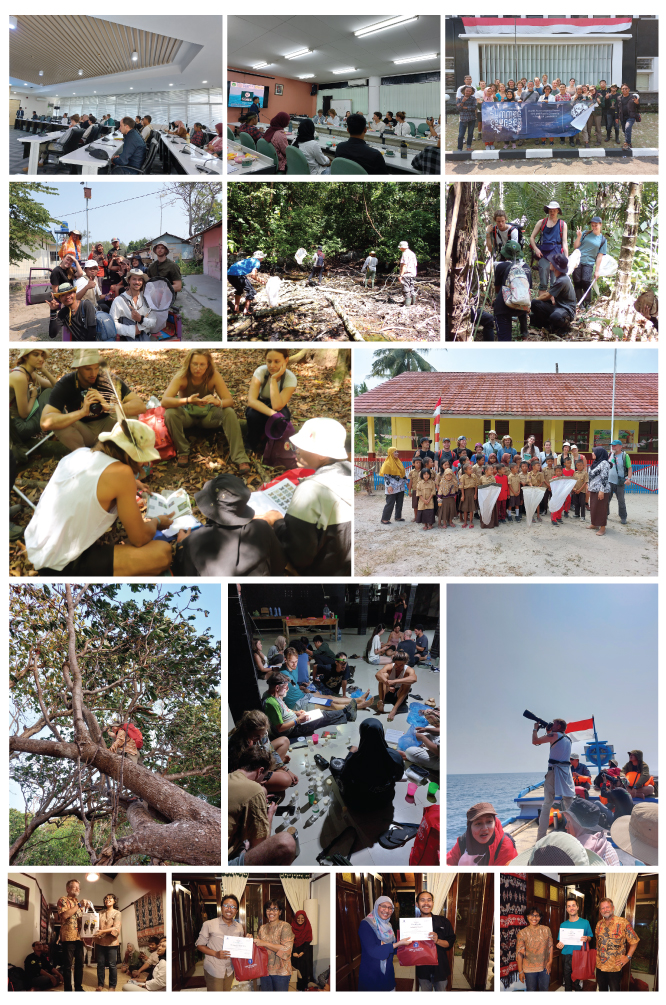
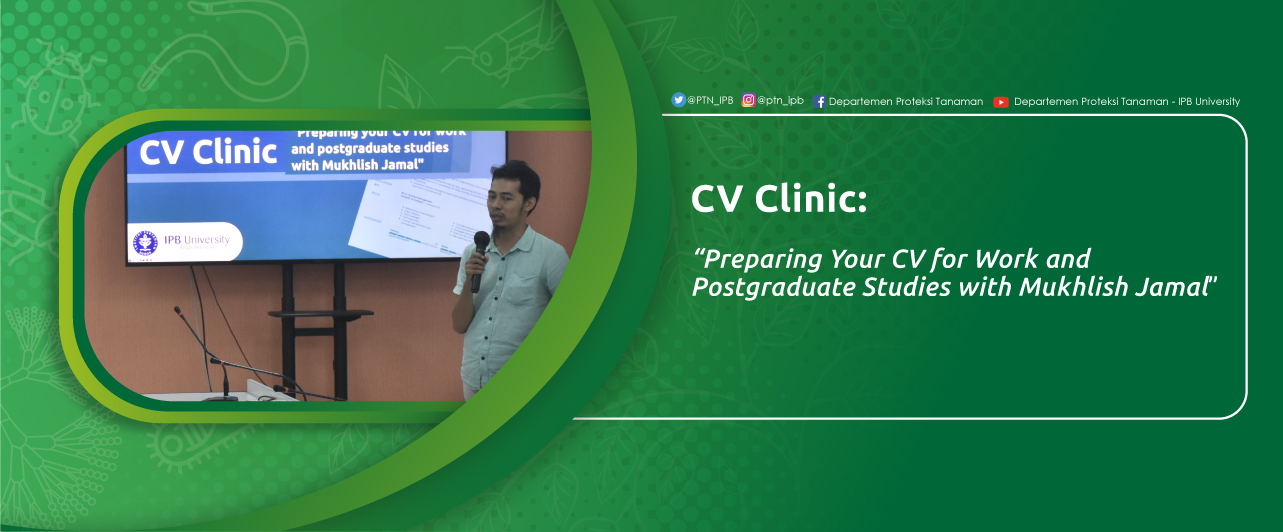
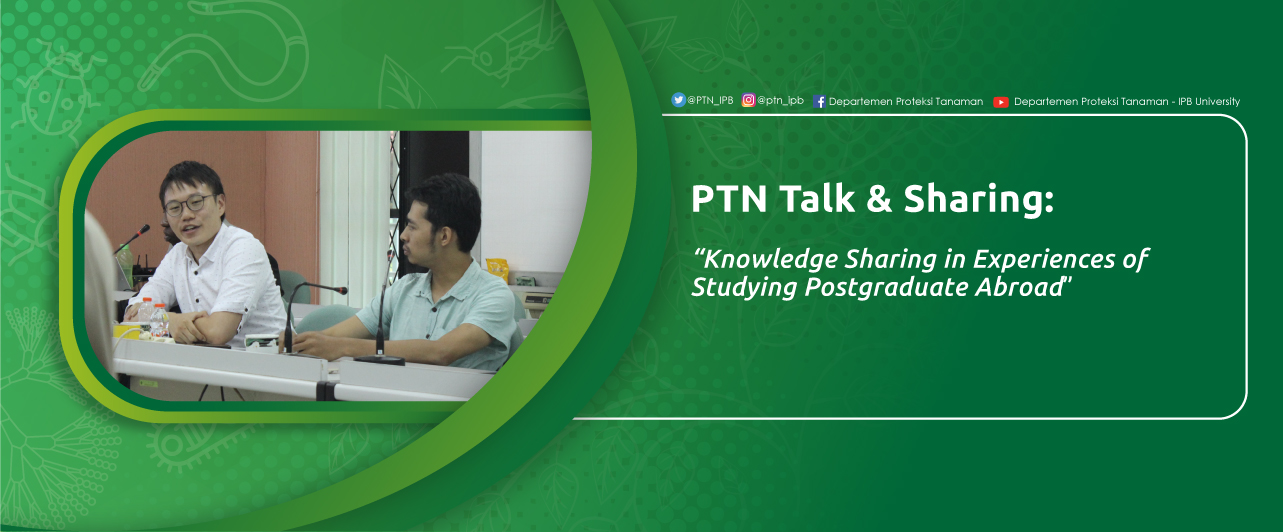
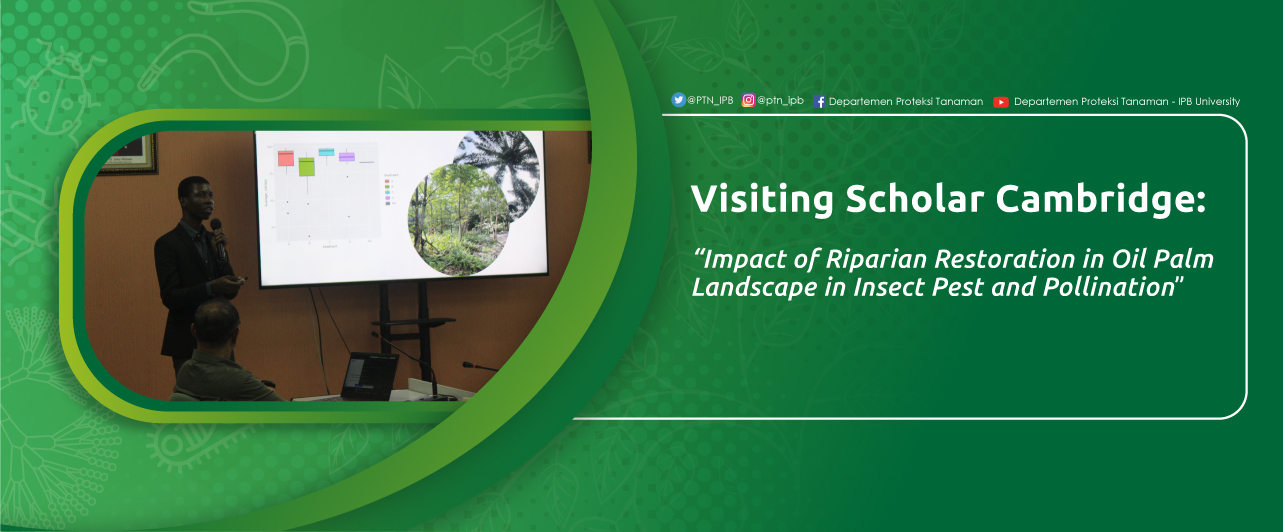
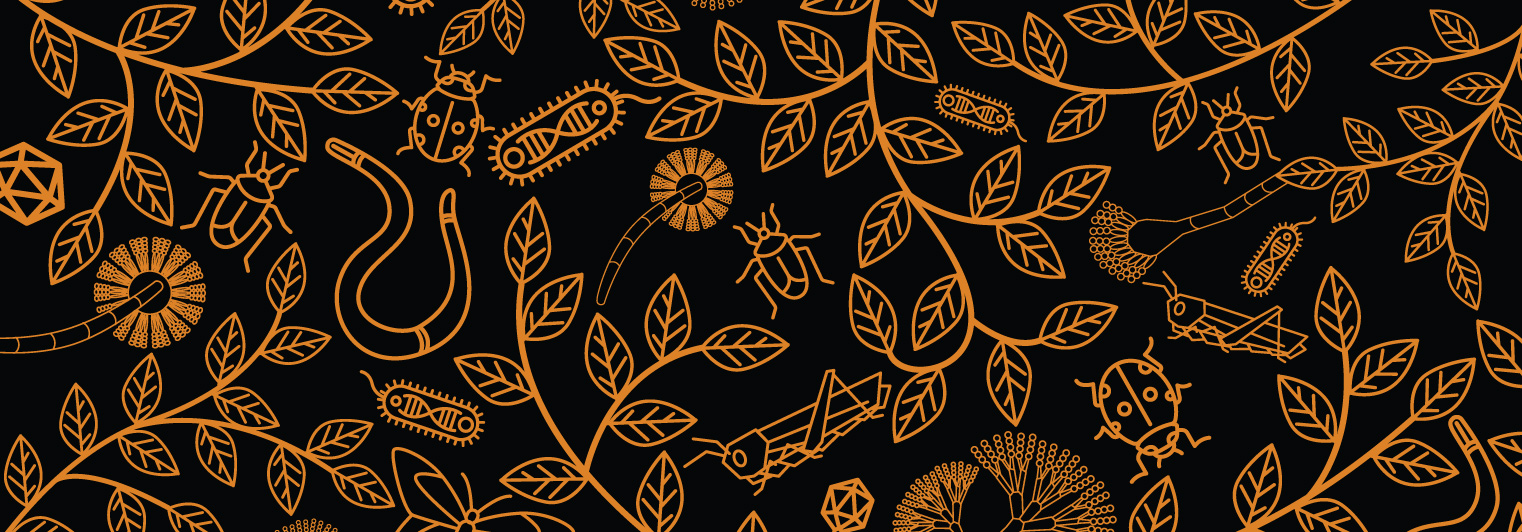
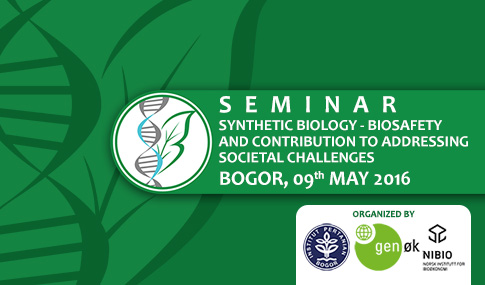
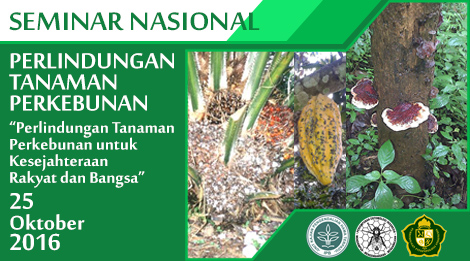

.jpg)